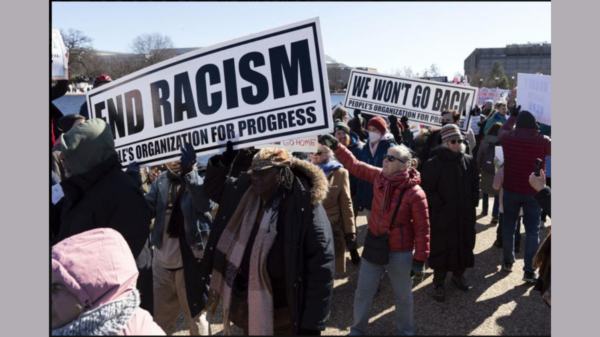
A record 49,500 people took their own lives last year, according to the U.S. Centers for Disease Control and Prevention, and the bleak statistics serve as a reminder that suicide is a major endemic in our country.
No community is immune. Here in Cook County, the rise in suicides among African American residents is particularly alarming.
Not only has there been a 53.8% spike in suicides in the Black population since 2019, African Americans are the only racial or ethnic group in the county whose suicide rates are now higher than they were at the height of the COVID-19 pandemic, as the Sun-Times’ Mariah Rush recently reported.
The data is even more grim for Black men: Their suicide rates are three times higher than that of their female counterparts.
Editorial
Mental health awareness has intensified in recent years, along with the push to provide support and services for those affected. But while there are many available resources, including publicly funded clinics and programs, the Black community continues to suffer the worst effects of the mental health crisis.
The disproportional impact of the pandemic on Black Americans only worsened the feelings of loss and hopelessness. Even before the pandemic, many Black people either didn’t seek help or couldn’t access it. Consider: In 2018, 69% of Black adults with mental illness received no treatment, according to Psychiatric Times.
Many African Americans might be too ashamed to seek psychological help due to the cultural stigma attached to it. But as Rush reported, local Black families who have lost a loved one to suicide say there is a lack of outreach and education tailored for their communities.
Groups like the Illinois chapter of the American Foundation for Suicide are doing their part by spreading the word about suicide prevention at South Side churches and other Black spaces.
But more preventive measures are always a good step.
Mental health professionals in Cook County should evaluate whether they are providing services that are culturally sensitive to a Black population already weary of the inequities in the health care systems.
These disparities can start quite early. Black youth are often diagnosed with behavioral problems, rather than other mental health conditions, according to the American Academy of Child and Adolescent Psychiatry. They are also more likely to receive poor quality care and are less likely to receive follow-up care.
That doesn’t bode well when the number of Black children and young adults — ages 10-24 — who died by suicide jumped 36.6% between 2018 and 2021, government records show.
Many suicides can be prevented. That won’t happen unless the gaps in resources and existing programs are closed.
The Sun-Times welcomes letters to the editor and op-eds. See our guidelines.









You must be logged in to post a comment Login